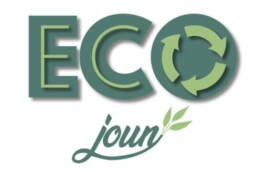
The production of single-use bottles of petroleum origin is one of the main factors in the increase in energy consumption, solid waste, and greenhouse gas emissions. Plastic production negatively affects the environment, from raw materials to the end of life. These plastics also affect the solid waste in Lebanon, because it is buried in landfills without prior sorting. Plastic forms around 12% of municipal waste, with the toxicity affecting the soil and consequently the groundwater through infiltration of the leachate. Therefore, with the recycling and reintroduction of the recycled raw material, the amount of waste to landfills will be drastically reduced in our target geographical areas. EcoJoun will collect the plastic waste from households and businesses and sort the plastics depending on the type (PETE, HDPE, LDPE, PP), clean it, and shred it to resell it to local recycling companies.
In addition, even though organic waste decomposes naturally in landfills, they release methane gas. To benefit from the organic waste from households and businesses, EcoJoun will provide community awareness sessions on the importance of sorting food waste, organize the pick-up of food waste, and feed the food waste to red wigglers to produce organic compost and fertilizers (vermicomposting). This process will reduce the amount of waste in landfills and provide local agriculture business access to affordable organic fertilizers.
12%
